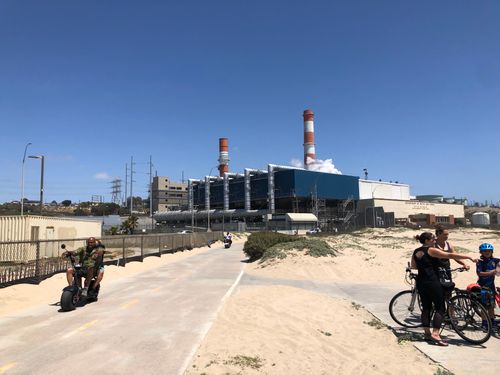Green methanol project developer CapCO2 Solutions is nearing the completion of a capital raise that would allow it to build its first pilot project at an ethanol plant.
The company is raising $13m from venture capital-type funds in the agricultural space, CEO Jeff Bonar said in an interview. The deal is expected to close within weeks.
Bonar declined to comment on the plant and its location, but he previously told the Carbon Herald that the plant would be adjacent to the Adkins Energy ethanol plant in Lena, Illinois. The expected green methanol output is 84,000 metric tons per year.
The pilot project already has a $1m commitment from a major player in the ethanol industry, Bonar said in a separate presentation.
Once operational, several large industry players such as Maersk have expressed interest in evaluating the pilot project for deployment at commercial scale, Bonar said. The cost of the commercial-scale project, which consists of roughly 10 modular units, would come in around $100m, thanks to efficiencies in construction deployment and scale.
The company has held talks with the DOE over a Title 17 loan for projects that are demonstrated at scale but not yet commercialized.
“We think the commercial-scale plant can pay for itself in two years,” he said, assuming an average green methanol price of $1,200 per ton. Bonar said there are a number of interested offtakers – even at that price point – including Maersk, who want to see larger green methanol production sizes before committing to offtake.
CapCO2 Solutions’ technology utilizes compact reactors for methanol production in a single “pass,” which greatly improves its efficiency. In traditional methanol production, a “pass” refers to a single cycle through the synthesis reactor where a portion of the syngas (a mixture of carbon monoxide and hydrogen) is converted into methanol, and the unconverted syngas is then recycled back through the reactor for further conversion in subsequent passes.
“We get 97% efficiency,” he said. “It’s much less expensive, and it’s much more compact.”
The commercial appeal of green methanol production is manifold. Capturing and utilizing biogenic CO2 lowers the CI score of an ethanol plant by around 25 points, and qualifies the ethanol for SAF production as a low-carbon ethanol. And the green methanol provides a new revenue stream that could amount to around $50m per year to the ethanol plant.
One of the more complicated aspects of CapCO2’s projects will be connecting to a renewable source of energy to make green hydrogen with electrolyzers. “Eighty percent of our costs are [from] making hydrogen,” he said.
The firm can mitigate these costs by operating when renewable generation capacity might be curtailed – Bonar said the modular green methanol production units can be ramped up and down to match renewable energy output.







